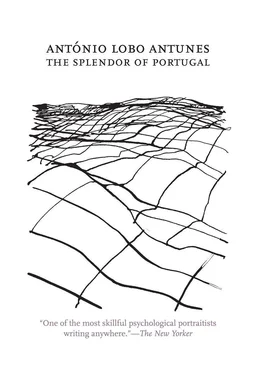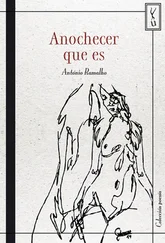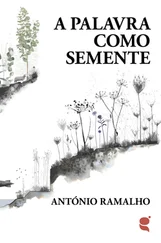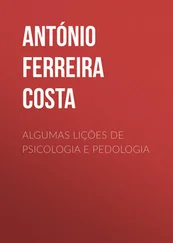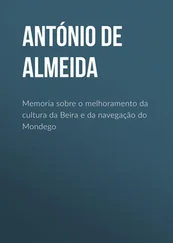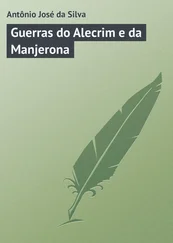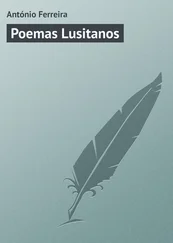António Antunes - The Splendor of Portugal
Здесь есть возможность читать онлайн «António Antunes - The Splendor of Portugal» весь текст электронной книги совершенно бесплатно (целиком полную версию без сокращений). В некоторых случаях можно слушать аудио, скачать через торрент в формате fb2 и присутствует краткое содержание. Год выпуска: 2011, Издательство: Dalkey Archive Press, Жанр: Современная проза, на английском языке. Описание произведения, (предисловие) а так же отзывы посетителей доступны на портале библиотеки ЛибКат.
- Название:The Splendor of Portugal
- Автор:
- Издательство:Dalkey Archive Press
- Жанр:
- Год:2011
- ISBN:нет данных
- Рейтинг книги:3 / 5. Голосов: 1
-
Избранное:Добавить в избранное
- Отзывы:
-
Ваша оценка:
- 60
- 1
- 2
- 3
- 4
- 5
The Splendor of Portugal: краткое содержание, описание и аннотация
Предлагаем к чтению аннотацию, описание, краткое содержание или предисловие (зависит от того, что написал сам автор книги «The Splendor of Portugal»). Если вы не нашли необходимую информацию о книге — напишите в комментариях, мы постараемся отыскать её.
The Splendor of Portugal — читать онлайн бесплатно полную книгу (весь текст) целиком
Ниже представлен текст книги, разбитый по страницам. Система сохранения места последней прочитанной страницы, позволяет с удобством читать онлайн бесплатно книгу «The Splendor of Portugal», без необходимости каждый раз заново искать на чём Вы остановились. Поставьте закладку, и сможете в любой момент перейти на страницу, на которой закончили чтение.
Интервал:
Закладка:
“So much hard work, you shouldn’t have”
Fernando with his tight curly hair straightened out with hair spray had one of his incisors pulled out and replaced with a silver one so that when he spoke the words shone, pulling his lips back, tremendously satisfied, showing off the unusual hardware that they’d hammered into his gums, upon returning to the plantation from Luanda where the boat had left amid pure chaos, full of baggage and people, of junk that had been hastily taken from the clutches of the Cubans and soldiers, bursts from machine guns on street corners, groups of ragged soldiers with machetes cutting each other’s throats, blond-haired Belgians in camouflage bolting down mortars on the porches of homes, naked corpses or ones wearing nothing but a single boot that were swept down ditches toward the sea by the heavy rain, the prostitutes on the island, without any customers, perched in the palm trees shaking their tits, a bearded mulatto in Muxima who made off with my gas can and spare tire
“Comrade”
whites in the parks, surrounded by beds and tables, sitting on little stools waiting for no one, bandaged elbows, bandaged heads, ashes from the moped they set fire to, the headquarters of National Front for the Liberation of Angola up in flames, the Cuca neighborhood devastated by cannon fire, bodies piled up in front of the morgue, the bearded mulatto unbolted the headlights, pulled off the windshield wipers, cut off the canvas top with scissors, a couple of young hussies were eyeing the ring
“Comrade”
that belonged to my family and that my father gave me before I got married, a ring without precious stones that at first glance looks valuable but isn’t worth a cent, one of the hussies grabbed my finger
“Hurry up I don’t have all afternoon”
my father with that expression that wasn’t a smile but looked like a smile
“See how nice it looks on you Isilda?”
shaved and dressed in a suit and tie for dinner at the plantation underneath the hundreds of lights from the chandeliers reflected in the silverware and plates, my mother looking very elegant, me with a ribbon tied in a bow around my waist and outside, instead of in a city, London for example, the cotton field after harvest, the smell of dirt got in through the open windows the curtains quivering in the wind, Damião brought out the soup with the majesty of one of the three wise men bearing gifts, ladies in low-necked dresses, with scarlet fingernails and scarlet lips, their eyebrows replaced with a curved pencil line that turned their facial features into a perpetual look of surprise, they put a cushion on the chair so I could sit up taller and their eyebrows turned toward me, in soft silky voices
“My God, how you’ve grown”
gentlemen in tuxedos smoked cigars, the lights turned off for dessert, the rustle of linen and wristwatches, beaded handbags, high heels that tapped on the ground with the sound of jangling crystals, legs crossed on the couches, a bridge table, my father handing out cognac and liqueurs with that expression that wasn’t a smile but looked like a smile, kisses that left me dazed in the ladies’ aromas, the cars leaving one by one illuminating the sunflowers, the cotton, the trees in the distance, and the workers’ huts, the ladies’ shoulders as they walked down the stairs, covered with translucent shawls as if it were somehow cold in all that heat, my mother to my father, under her breath
“You couldn’t take your eyes off the French woman Eduardo”
a woman with a fake, lozenge-shaped beauty mark who, when she leaned over, embarrassed my godfather, threw the clocks off their rhythm, and disrupted the bridge game, I remember her on horseback behind the church, my father with his hand on the stirrup
“Denise”
my father who was starting to go bald, his hand trembling
“Denise”
the French woman pulling away from him, pointing at me with her crop trying to get him to notice and my father indifferent, raising his fingers from the stirrup to her boot
“Denise”
my mother taking her shoes off and massaging her feet
“These sandals are killing me”
letting her hair down while stretching out in an armchair amid wine glasses, overflowing ashtrays, a six of hearts on the rug, Damião lined up the bottles in the china cabinet and tidied up the room
“Do you even for a second think that I’m blind to what’s going on between you and the French woman Eduardo?”
his thumb creeping up from her boot to her pants, from her pants to her belt, disappearing in between the buttons of her blouse, appearing again, disappearing, the sunflowers standing on end at the threat of rain, the field hands approaching through a shortcut in the grass, the French woman wasn’t wearing the lozenge-shaped beauty mark and now during the day, without makeup, she appeared less elegant to me, much older, with gray hairs, hopelessness in her eyes, blowing a kiss, hiding something, riding away at a trot, scraping horseshoes on the flagstones of the chapel where the names of the deceased were written half in Portuguese half in Latin, so worn down that they could hardly be deciphered, the sky completely opaque and in it the first bolt of lightning, the first drop of rain, the horse’s head and the woman’s head bobbing up and down in the rice paddy, the ceiling lights on, the lamps on the chests of drawers lit, Damião cleaning out coffee sludge from the colander, my father shutting the windows where the wind blasted against the casement and made the curtains flap, avoiding my mother who watched in the mirrors, her attention divided between him and her sore heel
“Why even lie Eduardo don’t be a child don’t overexert yourself you’re a terrible liar”
the French woman after an argument between my father and her husband that made it so that for months no one visited our house and no eyebrows rose in surprise at my entrance
“How you’ve grown”
sold her property to an Indian from Mozambique and moved to the Congo with her family, I never saw the horse or the lozenge-shaped beauty mark again, never again did the men interrupt their game of bridge, my mother exiled herself to the guest room and only spoke to my father through me
“Ask your father to pass the salt Isilda”
“Ask your father if he’s going to have a second helping of fish”
“Inform your father that the chief’s daughter died we need to give him a little money for their annoying drum circle I’m going to Luanda because I don’t want to deal with any parties”
my father meekly passing the salt, assuring her that he didn’t want any more fish, promising to give money to the tribal chief, wandering outside the guest room like a ghost but never daring to call out her name, coughing as loud as he could for my mother to hear but nothing, just a slight illumination below the door, the sound of breathing, an occasional noise, silence like that of a deep well, the bed made very early in the morning, a towel drying on the windowsill, a few bites of toast at breakfast, the butter dish with its lid on backwards, remnants of sugar at the bottom of a teacup, my mother out at a friend’s farm the whole day or in Malanje or at the convent, my mother ill, touching my hat with her fingertips
“How beautiful”
and upon returning to the plantation from Luanda where the boat had left amid pure chaos, full of baggage and people, a fat, ungainly boat, only good for cruising calm seas, it gave the impression that it was limping through the water, returning from Luanda, without my ring, without the gas can, without the spare tire, at every step of the way coming upon overturned vans, ruined straw huts, soldiers who were killed crossing the highway, military personnel from Katanga, Zaire, South Africa, upon returning to the plantation before giving orders to the servants and writing letters to my children to let them know I’d arrived just fine, I’m fine, I’ll be fine
Читать дальшеИнтервал:
Закладка:
Похожие книги на «The Splendor of Portugal»
Представляем Вашему вниманию похожие книги на «The Splendor of Portugal» списком для выбора. Мы отобрали схожую по названию и смыслу литературу в надежде предоставить читателям больше вариантов отыскать новые, интересные, ещё непрочитанные произведения.
Обсуждение, отзывы о книге «The Splendor of Portugal» и просто собственные мнения читателей. Оставьте ваши комментарии, напишите, что Вы думаете о произведении, его смысле или главных героях. Укажите что конкретно понравилось, а что нет, и почему Вы так считаете.
